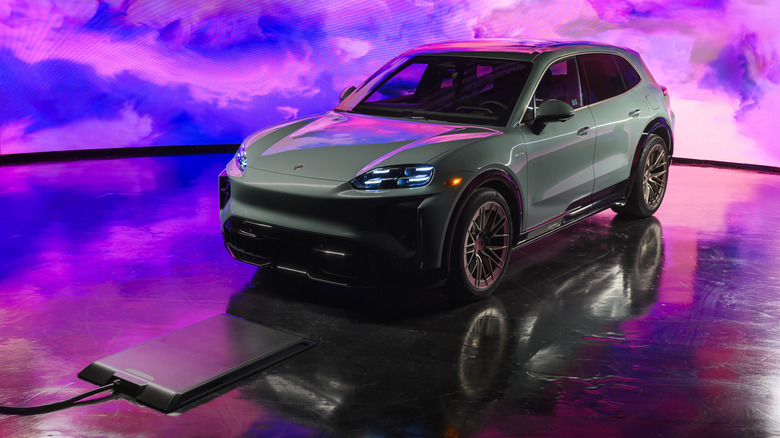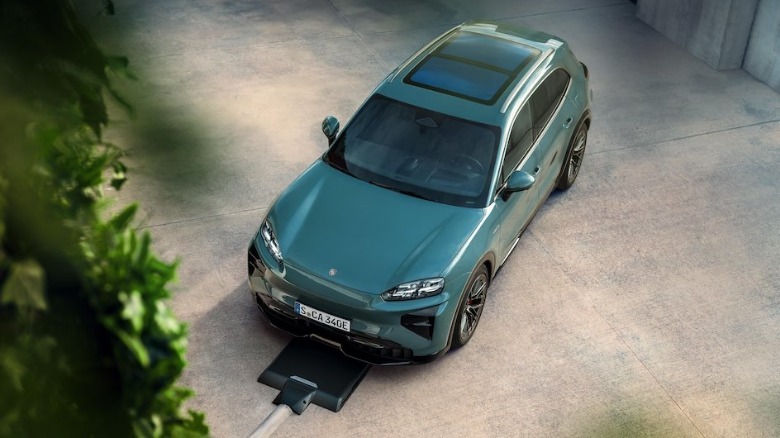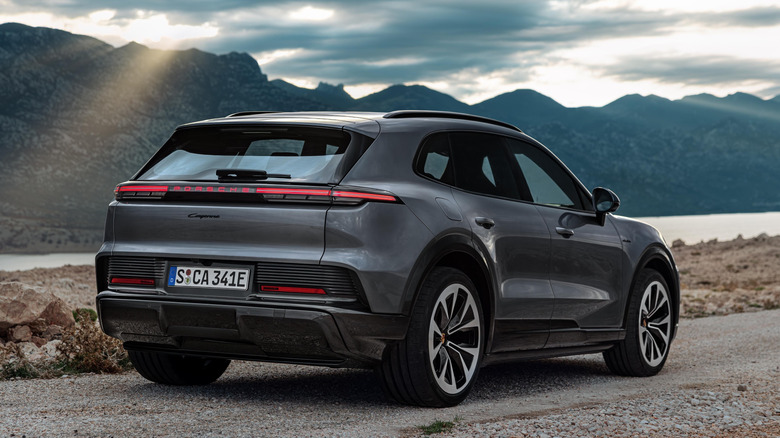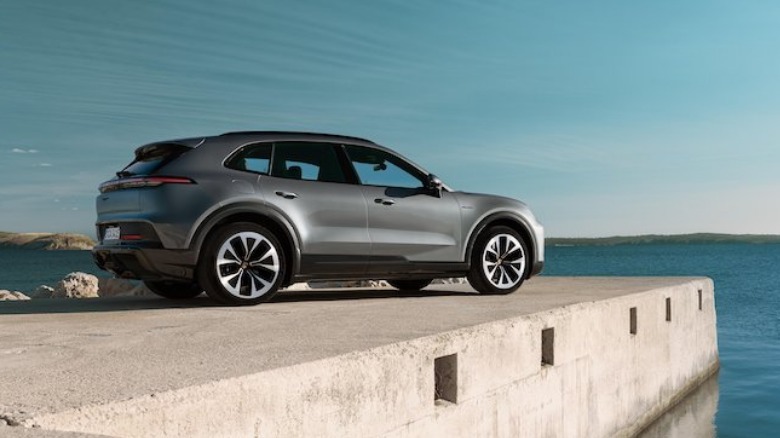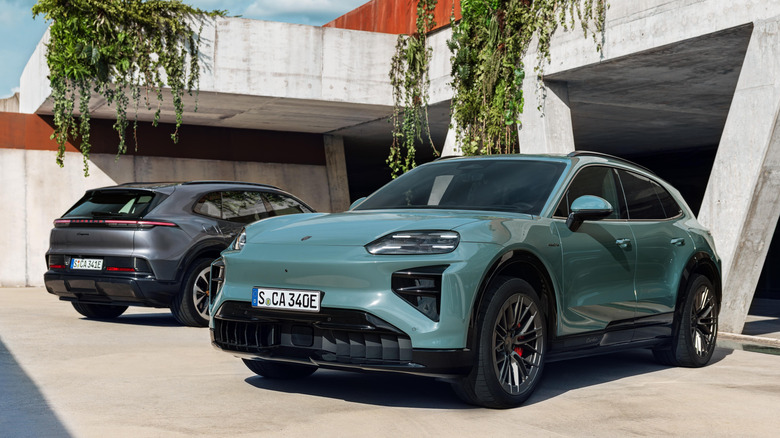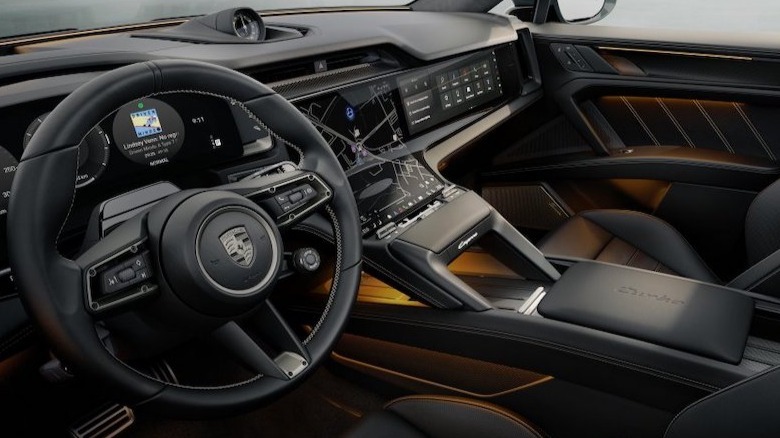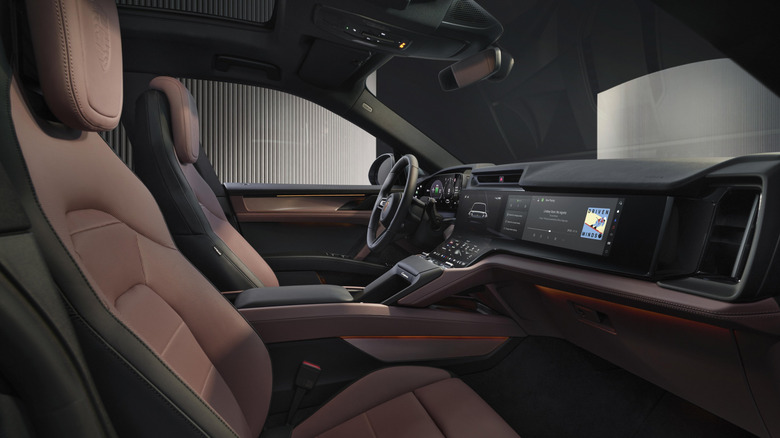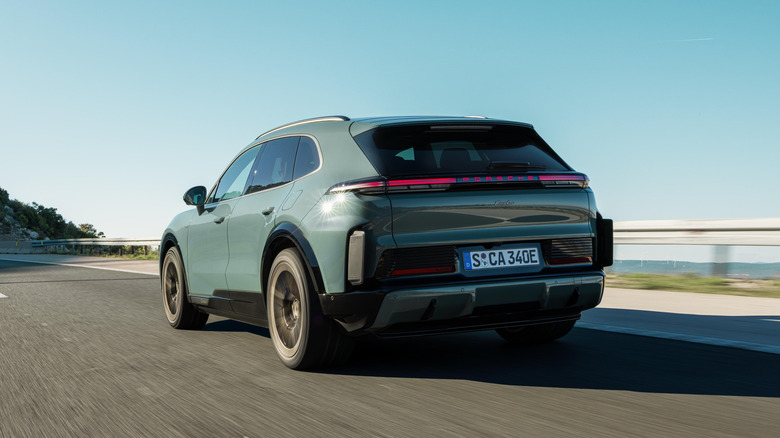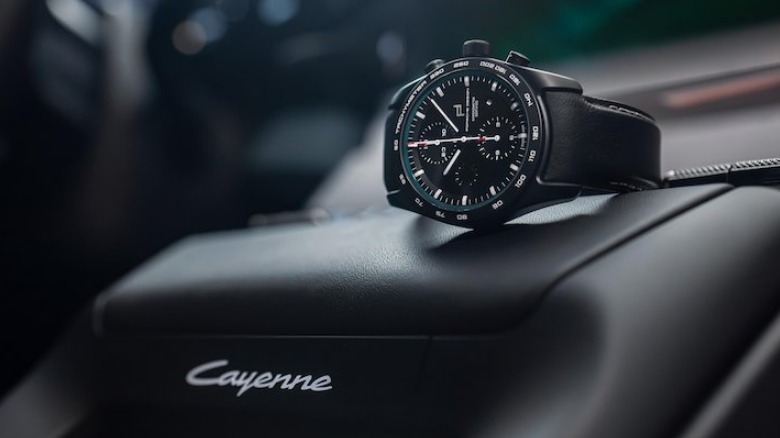Porsche Just Revealed Its Most Powerful Model Ever, And Its Wildest Feature Isn't The HP
It's not a Boxster, Cayman, GT3, GT4, or Carrera of any kind. The most powerful production Porsche ever is now an all-electric family SUV. The new 2026 Cayenne Electric is putting out 1,139 horsepower and 1,106 lb-ft of torque. Those sorts of power numbers make the Cayenne Electric capable of wild top speeds and blistering acceleration, which we'll get to in a bit, but one of its coolest and most groundbreaking features has to do with how the big, powerful SUV charges. Instead of being required to plug it in to add electrons, you can charge the Cayenne Electric via wireless, inductive charging.
In sort of the same way you can wirelessly charge your smartphone by placing it on top of a charging pad, the Cayenne Electric can be charged by driving onto an inductive charging pad. It's an option, so not every Cayenne Electric will come with it, but it's a unique convenience that a lot of owners will likely opt for. Instead of needing to plug in your EV when you get home, simply drive it into your garage and position it above your inductive charging plate, then head inside. The inductive charging option was announced by Porsche a little while ago, but all the details about the Cayenne Electric are now available, and we know just how impressive the latest SUV from Porsche will be.
All the charging options
When it's plugged in, the Cayenne Electric can charge at a rapid rate from all sorts of different sources. The inductive charging is the most convenient at-home option, with the Cayenne automatically lowering itself closer to the charging plate when it's properly parked, but it will only charge at a rate of 11kW, which isn't very fast. That's more of a "park it overnight and let it slow-charge a bit" kind of option. That's especially true when you consider the Cayenne Electric's battery size. It uses a large 113 kWh battery that requires a lot of juice.
To make sure it can top up quickly, Porsche has given the Cayenne Electric some very fast-charging capability, with up to 400 kW of charging power depending on conditions. If the charger providing the electricity is capable of sending the right amount of power, the Cayenne Electric can go from 10 to 80 percent battery in less than 16 minutes. There are also multiple charging ports to accommodate all sorts of power. An NACS DC-only charging port is on the driver's side, and a J1772 AC-only charging port is set up on the passenger side. And, of course, a Porsche CCS DC adapter comes standard. Range estimates from the EPA aren't available just yet, but we're hoping that the Cayenne Electric will outperform its smaller sibling, the excellent Macan Electric, and offer somewhere north of 315 miles of range.
Okay, but about that power
There will be two versions of the Cayenne Electric when it goes on sale, both of which come standard with all-wheel drive and Porsche's traction management system, ePTM. And even though the standard one won't get the headlines, it's plenty powerful. The standard version has as much as 435 hp and 615 lb-ft of torque in Launch Control mode. It makes the dash from zero to 60 mph in 4.5 seconds — a more than respectable time for a big luxury SUV. Then, there's the Turbo Electric, with its aforementioned 1,139 hp.
With all that power on tap, the Cayenne Electric is capable of accelerating from zero to 60 mph in just 2.4 seconds. To put that in perspective, the current Porsche 911 Turbo S, with 701 horsepower, a 200 mph top speed, and a $270k price tag, does the same 2.4-second run to 60 mph. Put it next to an SUV with tons of cargo space and a 6,614-pound curb weight, and the Cayenne's acceleration is even more impressive. Get it out on a racetrack, and the Cayenne Turbo Electric has a top speed of 162 mph.
Big, spacious, and capable
More than just a powerful EV, the Cayenne Electric is pretty spacious too. It is a bit larger than its speedy combustion-powered sibling (55 millimeters longer from nose to tail), making the Cayenne Electric 196.3 inches in total length. That extra space on the outside translates to an additional 5 inches of legroom in the rear and plenty of space for all your luggage. Behind the rear seats, you get as much as 19.5 cubic feet of storage, expanding to 56.1 cubic feet with the seats down, and a bit of added storage up front (3.2 cubic feet) where an engine would normally be. The boxy-but-powerful Rivian R1S has significantly more space on the inside and the added benefit of a third row, but at 200.8 inches long, it's also a bit larger on the outside than the Cayenne Electric.
If you plan on towing a trailer with your Cayenne Electric, the power will be useful there, too. The Cayenne Electric is rated to tow as much as 7,716 pounds. Though in my experience with towing and electric vehicles, range is drastically affected with any kind of trailer, so keep that in mind before you plan any cross-country towing trips.
What's it going to cost?
The standard Cayenne Electric will have a starting price of $111,350 (including $2,350 destination fee) while the upgraded Turbo Electric starts significantly higher at $165,350. Preparation for the wireless charging will cost $240, so be sure to select that option if you want the convenience of driving over your at-home charging pad at any point in the future. That price, however, doesn't include the charging pad itself.
Naturally, you can option and customize your Cayenne Electric in just about every way imaginable, with changes like upgraded paint, unique leather upholstery, specialized wheels, ceramic brakes (PCCBs), 18-way adaptive sport seats, and a 21-speaker Burmester surround sound system. Start selecting options in Porsche's configurator, and you'll have no trouble getting the price tag well above $200,000. Adaptive air suspension is standard on both the standard and Turbo Cayenne Electric, but Porsche's Active Ride system is available as a $7,650 upgrade that should increase both performance and comfort. Timekeeping EV SUV enthusiasts can also get a Porsche Design watch to go along with their Cayenne Electric, too. Porsche expects deliveries to start at the end of summer 2026.
